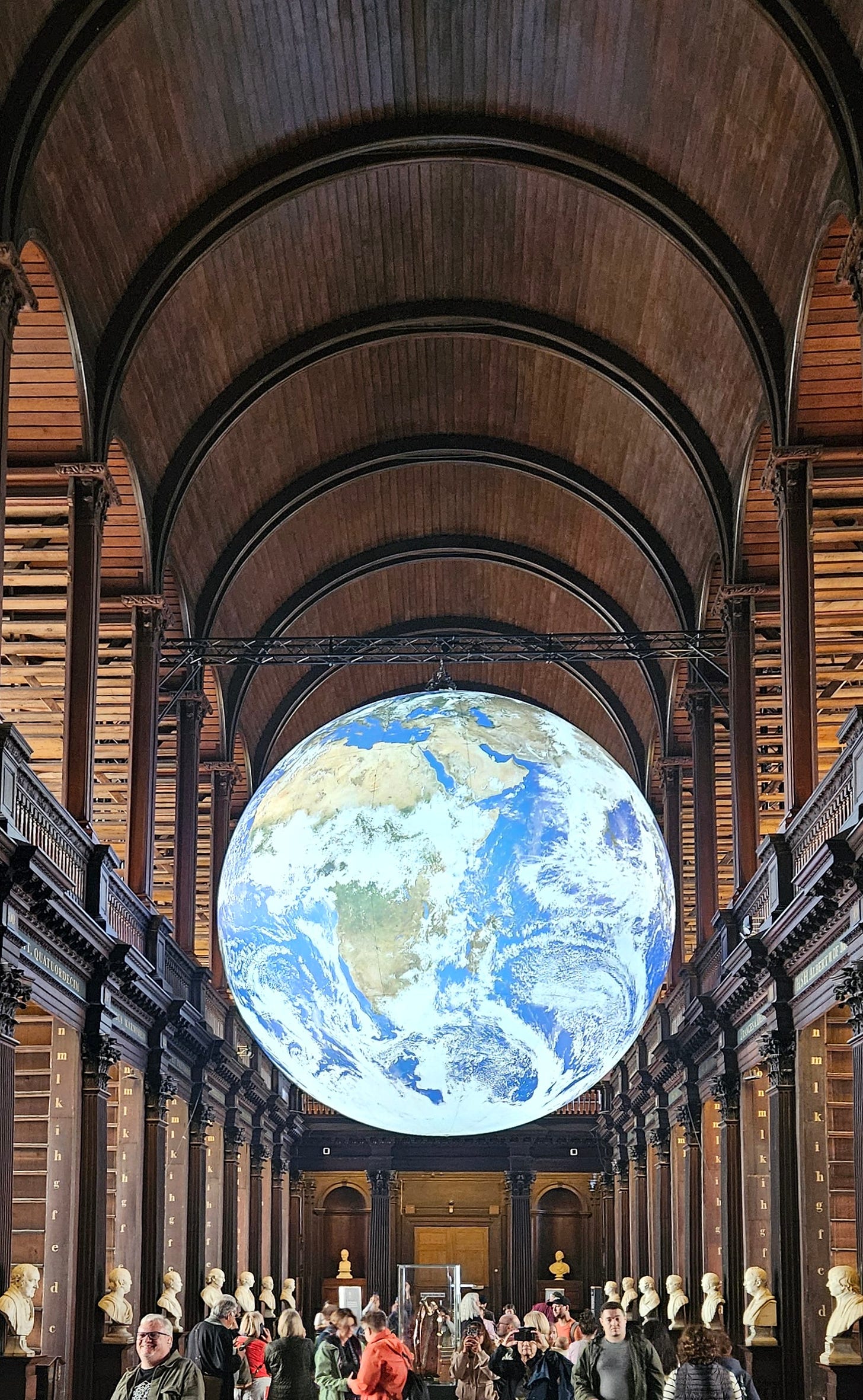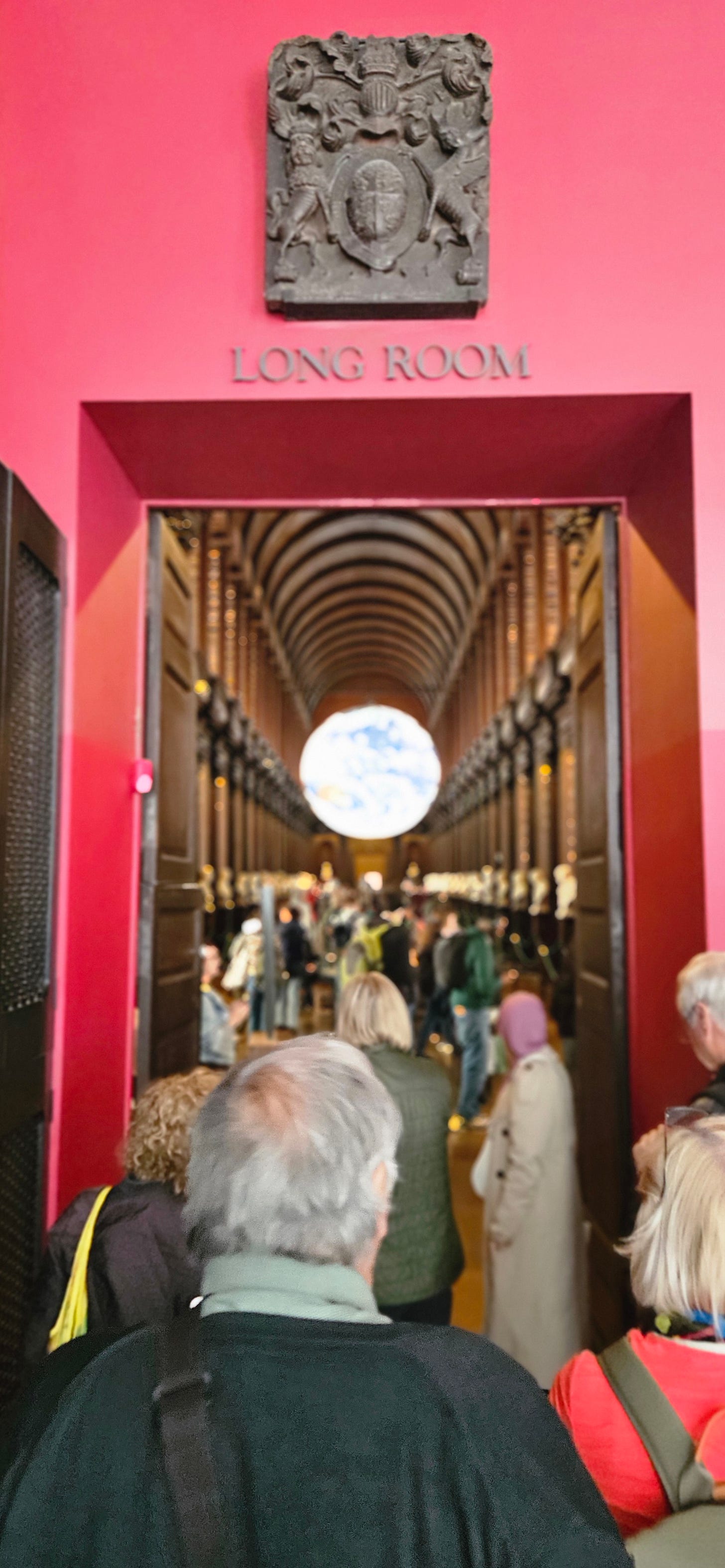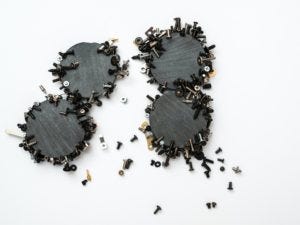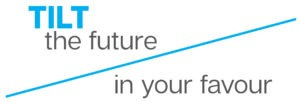Knowledge FOMO
E207: Can Community be our human cheat code
🧭 In this edition
Grief is an emptiness - A few Tribe Tilt members have recently had to deal with grief. Whether your relationship was measured in days or decades, our soul misses the company of the one we have lost. Pain is the price we pay for the joy of loving this deeply. In the words of Keanu Reeves: ‘Grief changes shape, but it never ends.’ Sending you a shoulder for the moment in your loss when you need quiet company. 1
Is Community a cheat code for Knowledge FOMO?
I have been trying to vibe-code a solution to my most pressing problem: As a professional data-hoarder, how do I cull my photograph database? It has given me great insights into the opportunities and limitations of these new tools.
“Collective Consciousness” - Is Community our Cheat Code for Knowledge FOMO?
How do we maintain our equilibrium in a moment of “hyper abundant content” (Paul Saffo)? Information is pouring in faster than we can process it. The challenge for us – and the generations coming after us – is how to surf the web effectively so that we get the thrill of riding the edge of the wave and not wipe out with overwhelm.
It turns out that there is a simple technique that can help us maintain this fine balance. It pulls together three basic ideas:
We have our personal list of favourite problems – a list as unique to us as our fingerprint. (The Feynman problems)
We each have an inner vision that guides where we invest our curiosity. We are magnetically drawn to these.
We can solve for not knowing everything about everything if we connect to diverse thinkers, giving us access to a collective consciousness
For that last point, I began exploring the wealth I was accumulating in the various learning and thinking groups that enriched my thoughts, my ideas, and my imagination.
Rather than re-inventing the wheel, I am reaching back into my archives today. “Permission not to know it all” (the source of all the quotes here) was conceived in WoP8 and birthed in March 2022. (Read the full read below the fold, for the full fun read including excerpts from ‘Soul’.2)
I began exploring the wealth I was accumulating in the various learning and thinking groups that enriched my thoughts, my ideas, … my imaginings.
My brain was pinging at the intersection of the interests in the various rooms, and cross-pollinating ideas (and relationship introductions) across groups with very different demographics.
Instead of visiting a library to learn and discover (The Old Library at Trinity College Dublin shown here), I now have the accumulated riches of the world’s knowledge databases at my fingertips as I use AI tools. But I feel I am constantly running to catch up to the latest, greatest, newest tech or headline. I’m exhausting myself, pushing against an invisible wall, keeping the multiplying AI-insider newsletters and ‘promise to teach you to leverage AI’ classes at bay.
I realize “Divide and Conquer” is a valid technique. And I can do that by leveraging my greatest resource - my human connections. The diversity of people who can share their experiences and help me target my learning on what is most valuable and insightful.
Hopefully, I’m able to return that favour.
Human networks offset FOMO
This is a great reason to encourage developing the community around us.
No two humans think alike. The best idea can be inspired from the intersection between anyone, anywhere, at any time. By establishing connections to other brilliant minds with some shared interests we create networks that exponentially expand our access to potential ideas. After all, it is the way our world got its literature, music and scientific breakthroughs for centuries.
Lean into the subject matter that interests you. Celebrate your unique perspective on the topic. And in that space, make the difference that only you can make.
And everywhere else, use your local and virtual human community, a tool that our civilization has leveraged across generations.
"}…{`
Some food for thought this week:
Do you have a ‘favourite problem’ tugging at your curiosity? Who, in your communit(ies), has been wrestling with something adjacent?
I am experimenting with Substack’s alternate headlines tool this week. I hope all the formatting with
Reminder: Act Two runs Wed, September 3 - Wed, October 8
Click here to sign up:
Hello Tribe Tilt!
Tilt the Future - answering when serendipity knocks is read across 51 countries including Canada, the UK, South Africa, Russia, Israel, Peru, and the USA.
Wow!
In Tribe Tilt, we believe we can make a difference to the people and places that are precious to us, bringing fun, hope and agency into our lives. We believe the best ideas can come from anyone, anywhere, at any time. Thank you for joining our tribe filled with inspiring and inspired individuals. You have self-selected into this powerful, wonderful group. Please add your voice and join our conversations.
Stay healthy. From there, all else becomes possible.
I’ll see you next week …
Karena
[For Andre, the full original article published March 2022, because I know you don’t like clicking on links!]
Permission not to know it all
I’d been experiencing a serious case of imposter syndrome. I couldn’t have felt more of a sham if I’d been sitting in a carnival tent, wearing a flowing robe and brightly coloured turban, staring into a crystal ball. As a strategist and futurist who imagines a range of possible futures, how had I not called the pandemic? I had factored in epidemics impacting the future of work. But a pandemic? And one that would shutter the globe for months and years on end? I did not see that coming.
What had I missed?
I was filled with guilt. What had I missed? Collecting signs and signals and playing with possibilities is the fun part of what I do. Variety means I am not obliged to call everything perfectly. But how do I make sure that does not happen again? I focused on the gap.
But I was in for a surprise.
“Your inner vision guides the topics that most interest you” explained Futurist Thomas Frey That one sentence was like a light bulb. Suddenly a weight that I didn’t know I had been carrying since March 2020 lifted off my shoulders. I could not know everything about everything. I realized the overwhelm I was working myself into was all in my head, struggling to find the signals I had missed.
I might have missed the signpost to the pandemic. However, my interest, passion, and preparedness regarding the Future of Work, dating back to 2015, meant I was perfectly positioned to help with myriad mindset shifts as families and employers navigated everything from remote work and learning to gig work and managing transitions. The pandemic acted as an accelerant on the Future of Work – and many of the workstyle changes that I envisioned for 2030 were suddenly playing out in 2020.
So, I am writing this essay for you if you also needed to hear this: “You have permission not to know it all.” You are here to do what you do best. Focus on ideas and concepts that light you up. Your obligation is to share those.
FOMO and overwhelm
How do we maintain our equilibrium in a moment of “hyper-abundant content” (Paul Saffo)? Information is pouring in faster than we can process it. The challenge for us – and the generations coming after us – is how to surf the web effectively so that we get the thrill of riding the edge of the wave and not wipe out with overwhelm.
It turns out that there is a simple technique that can help us maintain this fine balance. It pulls together three basic ideas:
We have our personal list of favourite problems – a list as unique to us as our fingerprint.
We each have an inner vision that guides where we invest our curiosity. We are magnetically drawn to these.
We can solve for not knowing everything about everything if we connect to diverse thinkers, giving us access to a collective consciousness
Consider adding the Feynman twelve problems exercise as a tool in your pack of 21st-century skills.
Information is not knowledge and knowledge is not wisdom.
In a world filled with A-types on FOMO overdrive, I think it is vitally important to set the expectation – particularly for our young adults – that one individual cannot know everything about everything. The democratization of information on the internet gives us the illusion that we can or should know it all. We are instantly introduced to fresh concepts. Smartphones and IoT quickly cede ground to newer discussions on Metaverse, pandemics, and Mars travel. The news cycle is 24/7 and 280 char. New data points keep popping up at an exponential rate.
Already estimated at 44 zettabytes (21 0s!) in 2020 by the World Economic Forum, the universe of data in the world is expected to rise by 463 exabytes (18 0s) daily in 2025. As you can see, access to information is no longer our problem. Gleaning wisdom from all that data is now the challenge. So, I am giving you permission not to know it all.
Focus on your unique list of favourite problems
In this tidal wave of information, can you develop expertise? Where does one start?
I came across an exercise that helps us do exactly that. Current day knowledge management and thought leaders such as Shane Parrish (Farnam Street), Tiago Forte (Build a Second Brain) and David Perell (Write of Passage) each reference it.
It is based on the thought process of Nobel prize-winning physicist Richard Feynman and goes by the name Feynman’s twelve questions. It explains how modern-day science has evolved as groups of scientists with overlapping but not identical interests work alongside each other.
“My approach to problem-solving is to carry around a dozen interesting problems, and a dozen interesting solutions to unrelated problems, and eventually, I’ll be able to make connections.
You have to keep a dozen of your favorite problems constantly present in your mind, although by and large they will lay in a dormant state.”
Feynman referred to them as questions. I prefer to think of them as interests.
I sat down to write my list (click for mine which I call my pensieve h/t to my kids’ HP interest). The results were eye-opening. Strong themes emerged rapidly. I gravitate towards these topics – parenting wisdom, climate, being prepared. I collect connections and inter-dependencies between these might make little sense to the other 7.8 billion people on earth – but they sing to me. My personal list is as unique to me as my fingerprint.
I see magnet concerns like “climate” “education and equity” consistently pop up because they make my hackles rise. I recognize that my interest in parenting wisdom is tied to the connection I had with my Grandmother. Like a griot, her storytelling passed to me her interest in genealogy, family lore and love of the land. I am the span of #7generations. This inspires my interest in the long view – family, legacy and climate. My personal life history means that I want to stand prepared for uncertainty. And as the daughter of academics, I feel compelled to share what I learn.
Your inner vision directs you
“Listen for how your body pulls you”, said Futurist Thomas Frey explaining why we resonate with some topics more strongly than others. It was permission to niche down, and not know everything about everything.
One way to evaluate if they belong on your list is to pay attention to your attention. These topics have a strong signal-to-noise ratio. They make up what he calls our “inner vision” (You may also know it as gut sense and intuition.) It is in the way one headline out of twenty will suddenly explode into 50 font pulling your eye as we open a newspaper or magazine (I know, how old school!), or your ear picks out a phrase in a conversation across the room in a noisy bar. We gravitate towards these topics like bees to honey, lovingly collecting them, connecting the dots and extrapolating possible futures.
“Life is the study of attention. Where your attention goes, your heart goes also.” – Brian Tracy
How do you recognize what is important to you?
I get hyper-focused and absorbed when my topics come on the scene. Time in the outer world stands still. “You light up when you talk to about the future of work,” I’ve often heard. My list now explains why that is – it’s because these are my passion projects.
Do you want an example of that feeling? I pulled this 59s clip from the movie Soul where teacher Joe Gardner describes this particular feeling you get when you know you are doing what you are meant to be doing to his middle school music class. “Woo, whoo!” “he was in it” Joe says trying to communicate that moment when the envelope with time dissolves and our soul is dancing in a different dimension. So many of us will be able to relate to this feeling – whether it is playing music, getting stuck in a Minecraft game or running a 10K. A vibe with a transcendant quality as he goes into the ‘Zone’ is the way jazz musician Jon Batiste – the real-life fingers that tickle the ivory behind the cartoon character of Joe – described it.
There is a good chance you have found this feeling before. If you have suddenly come back to the moment to see someone anxiously waving their hands trying to capture your attention, you know exactly what I mean.
Human networks offset FOMO
But what about FOMO? How are you supposed to get to know all the “other stuff”?
This is a great reason to encourage developing the community around us. No two humans think alike. The best idea can be inspired from the intersection between anyone, anywhere, at any time. By establishing connections to other brilliant minds with some shared interests we create networks that exponentially expand our access to potential ideas. After all, it is the way our world got its literature, music and scientific breakthroughs for centuries.
I may not have been tracking the pandemic signposts. But in my circle, there were others who were – Bill Gates (following!) and my epidemiologist sister.
Lean into the subject matter that interests you. Celebrate your unique perspective on the topic. And in that space, make the difference that only you can make.
What’s in your dozen?
Do you want to try this out for yourself? It is really easy to do as an exercise. Ideally, do this in 3 cycles.
You are aiming for a list of open-ended questions. They may start with “How can/may I …” You may include ideas that intrigue you, concepts that captivate you, exercises that you keep returning to for energy. Or persistent injustices. I find the UN sustainability goals to be a good source of motivation for that last one.
Set a 5-minute timer. Write down the issues and ideas that you find yourself dwelling on while in the shower, on a walk, or while journaling. In this first iteration, it is important to let your subconscious do the talking. The time constraint helps with that – do not overthink the answers.
Set a 15-minute timer. Revisit your original list and flesh it out if needed. THE ORDER DOES NOT MATTER.
Revisit this list at least once a year. Evaluate the items that remain over many years and those that move due to changing life-stages.
Aim for twelve or less. It helps to focus your mind on concepts you really care about rather than tasks to be completed.
A pitch for adding this to the high school curriculum
I wish we had done this exercise in high school when we were choosing degrees and careers.
The 12 favourite problems explain why we gravitate towards certain career paths. When JP Michel uses his Sparkpath challenge cards to help students unearth their optimal career path, he is asking these young minds ”What problems do you feel most attracted to, and why?” Sometimes your passion to be a vet or for food science is inspired by your love of animals. Other times, you are drawn to studying astrophysics even though you are completely aware that there are problems like equity in education, poverty or climate that are waiting to be solved right here on planet earth. That explains a lot, right?!
Here are some articles written by Tribe members about grief:
A Psalm of Lament, Brandon Weaver
God’s Grace in Grief, Dipankar Subba
Her Divine Dividend, James Bailey
Grief is a Room, Salman Ansari
Little Lessons from Grieving, Steven Foster
Mourning does not have a timetable, Karena de Souza
Permission not to know it all link to the full essay which talks about using the Feynman exercise as well as your personal interests to target explore the passions and problems that you are most attracted to solving.







Karena - I smile when you enter my world. I appreciate the essays on grieving. I just read them, thank you. 🙏.
Returning to my head - this perspective grabbed my attention: “By establishing connections to other brilliant minds with some shared interests we create networks that exponentially expand our access to potential ideas. After all, it is the way our world got its literature, music and scientific breakthroughs for centuries.”
Such a wonderful call to action. The magic happens in the connections, not the isolation.
Sending you much love. ❤️